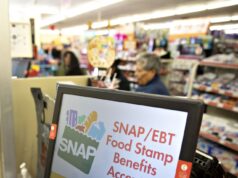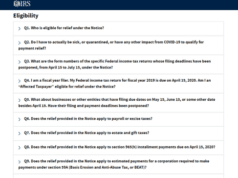
Consumer fraud happens when a person or entity suffers from a financial or personal loss. It often involves unfair, misleading, false, or deceptive business practices. Although all consumers are at risk of fraud, college students and senior citizens are at the highest vulnerability.
Consumer fraud covers a wide range of illegal practices done to cheat. The following are some of the types of consumer fraud and their impact.
Types Of Consumer Fraud
Mortgage fraud
According to the FBI’s Financial Institution Fraud Unit, most mortgage frauds aim to distress homeowners. They handle thousands of mortgage fraud incidents yearly.
The scams include equity skimming, modification schemes, and foreclosure rescue schemes. In most instances, they are carried out by mortgage and real estate professionals who misappropriate their authority and knowledge.
Credit card fraud
Debit or credit card fraud happens when your card is stolen, or the information on it is used to withdraw money or make purchases. To be eligible for dispute, the Fair Credit Billing Act stipulates that the credit card charges must be more than $50.
You are probably a target of credit card fraud if you receive calls asking for your credit card details, notice an abnormal decrease in your available balance, or your statement has unforeseen charges.
Identity theft
You are a victim of identity theft if your personal information, such as your Social Security number or credit card details, is stolen by another person.
Data mining, which many companies use to obtain practical information from raw data, greatly aids this type of crime. Notable signs of identity theft include unexpected bank withdrawals and bills for services you did not receive.
Nursing Home Fraud
If your loved ones are living in a nursing home and the caregivers stole their money, it is possible to gain compensation. Financial abuse can occur when a caregiver steals money from your loved one or forces them to pay them extra for assistance. This type of exploitation is against the law. If a caregiver or facility is financially abusing your loved one, they may be unable to pay for medical care, prescriptions, or other necessary items. You’ll need to contact an experienced nursing home abuse lawyer to find out your loved one’s options to collect damages.
Interest rate reduction robocalls
Although similar to credit card scams, this type of fraud is relatively new, it involves robocalls or automated calls that offer a reduction of your interest rates at a small fee.
Sometimes after requesting personal information, the scammers end up committing identity theft. You are advised against divulging your personal information to unsolicited calls.
Lottery fraud
Lottery fraud happens when you receive communication, primarily through text, phone calls, or email, claiming that you are the lottery winner.
However, the scammer will tell you to send money to cover taxes or other expenses. Also, requirements for a meeting before receiving your prize or getting a notification through bulk mail are red flags.
Effects Of Consumer Fraud
Human impact
Since fraud can be a traumatic experience, it can cause irreversible damages to victims, their careers, families, and communities. Often, most victims of fraud are those that depend on government services, such as the elderly and the vulnerable.
However, cryptocurrency platforms are also targeted. Besides lost opportunities for businesses and individuals, it can also lead to long-term physical and mental trauma for the victims.
Industry impact
When fraudsters obtain a competitive advantage and drive out legitimate establishments, it can cause distorted markets. It can expose other sectors to more fraud cases and disrupt service delivery by businesses. Also, the community services and charities that assist fraud victims will be significantly burdened.
Reputational impact
Fraud can result in the erosion of trust in government or a business entity if handled poorly. In instances where corruption facilitates fraud, it can cause loss of economic and international reputation.
Since most fraud is difficult to categorize and detect, entities can accurately estimate and expose their potential fraud losses by establishing measurement mechanisms.
Although anyone can be a victim of fraud, there are some measures you can take to protect yourself. Avoid sharing sensitive personal information such as credit card details with telemarketers. If you suspect you have been defrauded, you should seek the services of an attorney for advice.








